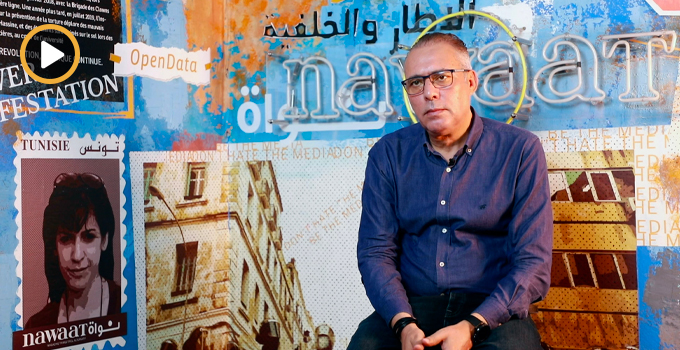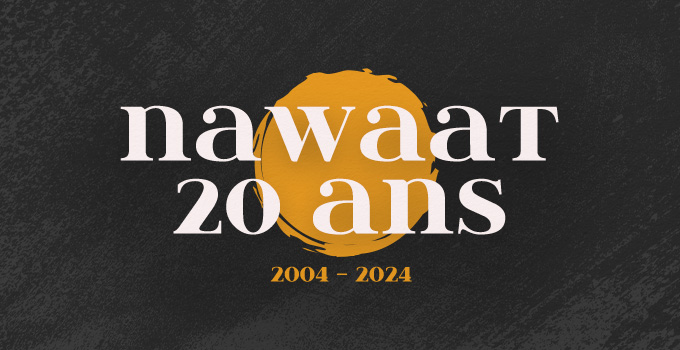
Nine new members of the SNJT’s executive committee were elected during its fifth congress, held over September 19th and 20th. Not one of them is over 40 years old. The new committee members are : Amira Mohamed (287 votes) ;Faouzia Ghiloufi (274 votes) ; Mohamed Yassine Jelassi (230 votes) ; Wajih Wafi (229 votes) ; Rim Saoudi (221 votes) ; Ramzi Afdhal (194 votes) ; Abderraouf Bali (180 votes) ; Sami Nasri (176 votes), and Yassine Bahri (172 votes). They were elected from the 33 candidates who participated in the elections for a three-year mandate. The new executive committee then elected Mohamed Yassine Jelassi, who goes by the name Mahdi, as president during its first meeting.
Record participation
The SNJT’s congress was held under the slogan of «The Rights of Journalists :A Cornerstone of Press Freedom». A total of 691 journalists voted to elect the union’s new committee. « It’s the biggest participation of journalists in executive committee elections since 2011 », SNJT’s executive director Fahem Boukadous told Nawaat. The high level of participation took place amid a turbulent political and economic situation, Boukadous added.
« This participation of journalists in the congress shows the great importance of the union in the present circumstances », he said, adding: « Journalists are concerned about the dangers that threaten them, in particular the poor prospects they face in light of the political and social situation. They have understood that they must belong to this big union, which is the mechanism most capable of defending their interests ».

Salwa Ghazouani, director of Article 19’s North Africa and Middle East office, applauded the elections carried out in a democratic climate without the intervention of authorities. « Compared to executive committee elections before the revolution and to elections in other unions in other countries in the region, we must congratulate the democratic way that this vote took place », she told Nawaat. Of the nine new members of the committee, seven of them have been elected for the first time, with only members Mohamed Yassine Jelassi and Faouzia Ghiloufi serving again.
More Women, MoreYouth
The SNJT’s new executive committee now includes three women journalists: Amira Mohamed, Faouzia Ghiloufi and Rim Saoudi. Two of these women won the biggest number of votes. Their presence reflects the increasing participation of women in the sector. According to a source who works in the authority that issues press cards, 854 women have a press card versus 742 men. For Salwa Ghazouani, the large number of votes for the three elected women « reflects people’s confidence in women for leadership positions ».
Besides the emergence of new faces and a significant number of votes for women, the new committee is also marked by a strong participation of young people. « They constitute 70 percent of candidates, and these are skilled individuals », remarked Néji Bghouri, the outgoing SNJT president. According to Bghouri, the rise of this new generation is « reassuring » and « shows that the sector is alive and capable of producing talent ».

Ghazouani of Article 19 believes that the large number of young people in the new committee is « positive » and « shows that the outgoing committee has made room for the entrance of young people ». Ghazouani also emphasized that the inexperience of young people also presents a challenge to overcome.
« Some don’t have experience in unionism and will be called upon to work under pressure and to volunteer their time. Being in an executive committee is also a lot of responsibility and requires the ability to negotiate and to be a part of a vast network of organizations », she explained. « Many challenges lie ahead. Some are old, and new ones will arise. The question is: will this new committee continue the work started by the outgoing committee? »
Challenges Facing the Elected Committee
The precarity facing journalists was at the center of discussions during the congress. During his speech, the SNJT’s outgoing president Néji Bghouri called on Hichem Mechichi’s government to hasten the application of the collective agreement for Tunisian journalists signed in January 2019. The agreement aims to combat the precariousness of the occupation by guaranteeing journalists’ moral rights [i.e. copyrights] and material rights. Described by Bghouri as « an accord that is unprecedented since 1962 » and « capable of bringing an end to precarious work », the agreement lays out journalists’ rights, such as minimum wage, contracts, work hours, etc.
According to Salwa Ghazouani, beyond application of the collective agreement, the new committee is up against the economic difficulties that all media—public, private and associative—are facing. « We are faced with a lack of advertising revenues and investments in the media, amid a climate of political instability and with a State that is failing and in crisis. All these factors must be taken into account order to produce a realistic evaluation that does not sell false promises to journalists », she explained.

Regulation of the media sector is also a challenge for the new committee. A press council was set up to address this issue. The nine-member council, which Bghouri referred to as an « achievement », will tackle sector regulation by establishing a code of ethics. According to the outgoing president, the establishment of this new council is taking place in a context that presents important challenges for journalism as an occupation. Specifically, he evoked the « deterioration of the political scene which is characterized by the rise of populism and extremism ». He warned that« these currents have reached decision-making positions and threaten freedom of expression because they have succeeded in creating junk journalism ».
According to president of Article 19 Ghazouani, the greatest challenge facing the new committee is the guarantee of freedom of expression and of the press. Here the new body will have a major role to play in the creation of a new audiovisual regulatory authority to replace the HAICA, in the elaboration of a new press law to replace Decree-law 115, and in the examination of draft laws indirectly related to freedom of the press, such as the law concerning protection of law enforcement.
Ghazouani also brought up the issues of: media confiscated by the State; the investigation into diplomas granted after expedited journalism trainings, and division within the field over whether or not to recognize journalists who do not have a degree in journalism.





iThere are no comments
Add yours